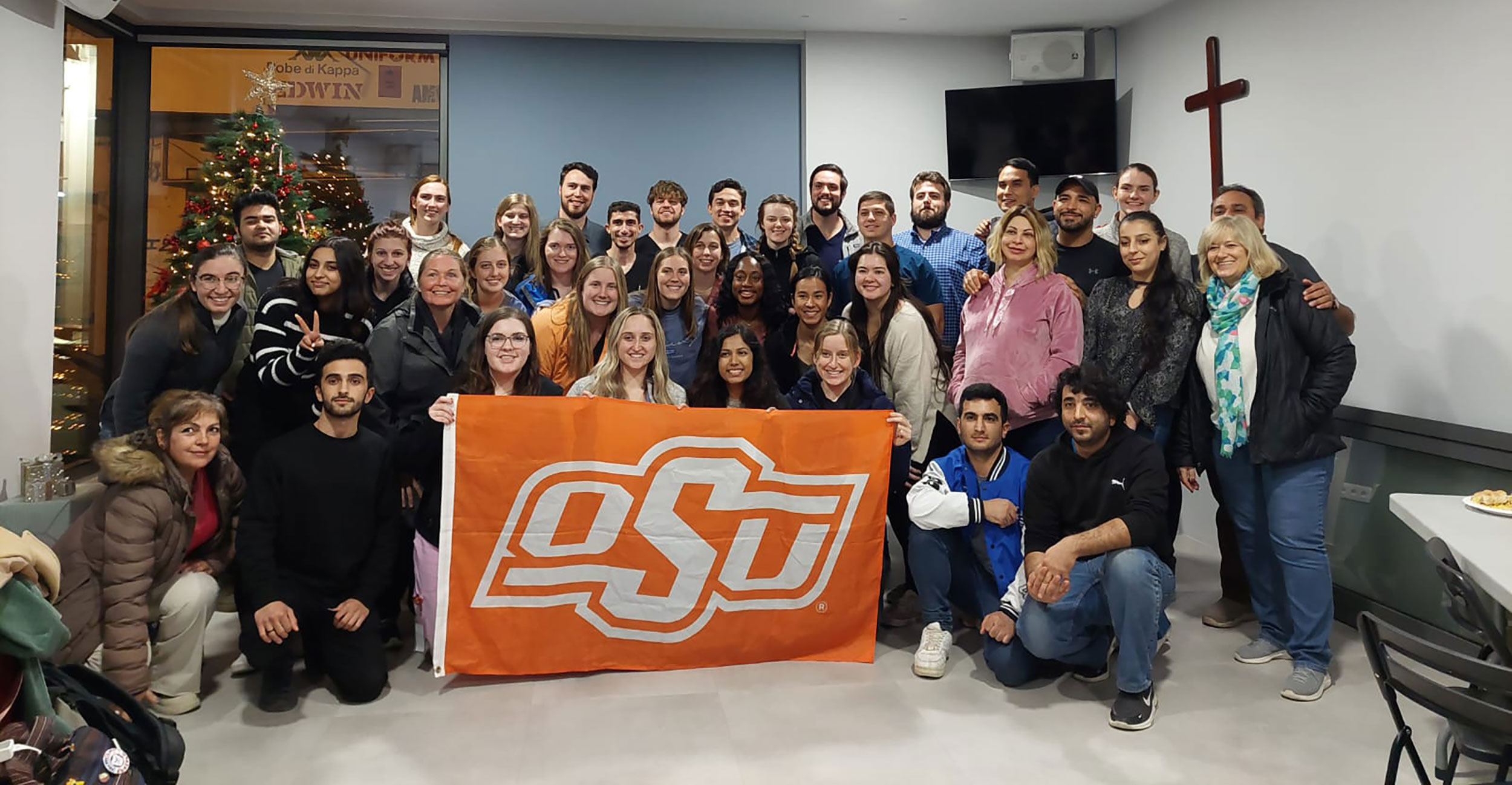
Med students take passion for health care around the world
Thursday, April 13, 2023
Media Contact: Sara Plummer | Communications Coordinator | 918-561-1282 | sara.plummer@okstate.edu
Overcoming an illness during a remote hiking trip in Peru. Growing up a second generation Ghanaian American and hearing about the stark differences in health care between the two countries.
There are a variety of reasons OSU College of Osteopathic Medicine students chose to be part of the school’s Global Health Track, which takes students to different parts of the world where they utilize and hone the clinical skills they are learning in places where health care is most needed.
John Mumey, the Global Health coordinator, said the Global Health Track allows students the opportunity to travel to places they may not have considered before and use the clinical skills they learned in the classroom while being supervised by residents and physicians who are there for guidance and training.
“It offers medical students a one-of-a-kind experience alongside their peers,” Mumey said. “They are traveling outside their comfort zone, visiting new countries, interacting with individuals who may speak a different language.”
Second-year medical students Ryan Emmert and Emily Sowah were both part of a delegation of 22 medical students who traveled with two residents and two physicians to Athens, Greece in December 2022 to work in a clinic that treated patients who were displaced or refugees.
“Greece was amazing. We stayed and worked in the city of Athens where we provided free health care for Iranian refugees. It was wonderful getting to work with translators and learn about the patients’ lives and experiences. I couldn’t help but feel thankful to be able to help them with their health care,” said Sowah, whose parents are from Ghana and who instilled that culture in her and her brother.
“My mom has sickle cell anemia, and she would share about how different health care is here in America versus in Ghana. That piqued my interest in learning why health care was different, not just in Ghana, but across the world,” she said. “In learning about these differences, it made me want to bring more advanced health care and education to citizens internationally in whatever form I could.”
“I don’t think a healthy lifestyle should only be available for those who have access
to it. It’s why I went into medicine, to reach people who are hard to reach.”
Several years ago when backpacking with her father in Peru, Emmert got severe food or water poisoning.
“I was a day’s hike away from a town that had any kind of medical care or a doctor,” she said, and that experience is why she wants to work internationally as a physician, especially with patients like those she interacted with in Greece.
“The people, they have so little but are beyond grateful. You gain perspective on what they’ve been through, but also what you have that you take for granted. You also reach a level of empathy you didn’t know you had,” she said. “I don’t think a healthy lifestyle should only be available for those who have access to it. It’s why I went into medicine, to reach people who are hard to reach.”
One of the goals for these trips is to help populations who need it the most, Mumey said. This was especially pertinent to the Greece trip since the patients were displaced with limited access to health care.
“We had the privilege of providing health care and the students had a chance to implement some of the clinical skills they have developed from school,” he said. “These international rotations allow students to expand their cultural competency regarding medicine, and these skills are imperative no matter where a student decides to establish a practice following medical school.”
For many medical students who take part in global health trips, Mumey said the experience of working in clinics and hospitals without an abundance of resources can also prepare them for what they may encounter when practicing medicine in rural or underserved communities.
Emmert said the Global Health Track is the reason OSU-COM was high on her list of medical schools when she was enrolling.
“Not a lot of schools have something like that. To have it so easily at your fingertips and have it offered through the school, it’s very convenient,” she said.
“This trip has already impacted my medical school career positively by instilling
confidence and trust in my own self. It’s an amazing experience that anyone can benefit
from, and it never hurts to help communities around the world.”
Sowah is already looking forward to her next global health trip and would recommend the experience to her fellow classmates.
“This trip has already impacted my medical school career positively by instilling confidence and trust in my own self,” she said. “It’s an amazing experience that anyone can benefit from, and it never hurts to help communities around the world.”
